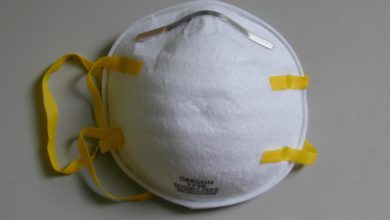
School, sports, after-school clubs, and don't forget study groups, mostly indoors. It's a kid's life in the fall, her growth, academically, physically, socially and emotionally. And this year, the delta variant interweaves through it all – and questions about children's protection hover just above.
Meanwhile, no vaccine has been authorized for use in children under the age of 12. Schools have returned to session with wide variations in mask requirements. Masking has even resulted in court cases in Northern Kentucky and against one suburban Cincinnati district.
We asked several Cincinnati-area pediatricians you might know to answer seven questions about the delta variant and how it affects children.
Here's who we talked to:
- Dr. John La Count, pediatrician, St. Elizabeth Physicians, Florence.
- Dr. Robert Frenck, pediatrician, director, Vaccine Research Center, Cincinnati Children’s Hospital Medical Center.
- Dr. Robyn Gorman, pediatrician, TriHealth’s Queen City Physicians – Madeira Pediatrics.
- Dr. Jennifer Forrester, associate professor of medicine and associate chief medical officer, UC Health.
- Dr. Camille Graham, chair, pediatric council, regional medical director, Mercy Health Physicians.
Here's what we asked, and what they said:
How susceptible are children in the unvaccinated age range?
La Count: "Delta is much more contagious and seems to have a significant amount of additional morbidity in children. With delta, the response of unvaccinated children is reminiscent of the response adults had to the first variety."
Frenck: "The delta variant appears to be more easily spread than other varieties of COVID-19. Currently, delta is the cause of more than 80% of new cases of COVID-19 in the U.S."
Gorman: "These children are unfortunately very susceptible since they are unvaccinated. As pediatricians, we are concerned that this wave of COVID-19 infections is particularly worrisome for those who are unvaccinated, including children under age 12."
Forrester: "We don't know exact numbers but definitely seeing children of all ages being affected disproportionately to their proportion of the general population. This is likely due, at least in some part, to the fact that some of them are not yet eligible for vaccination."
Graham: "Children under the age of 12 are very susceptible as their immune systems have likely not encountered this virus before, even if they had COVID-19 alpha variant."

Is delta causing more COVID-19 among kids?
La Count: "Yes, there is no doubt it is the driver for the current surge in illness in children."
Frenck: "Yes. At this time, vaccination is only available for children 12 years and above. And, of the 25 million children 12-17 years of age for which a vaccine is available, only about 7 million – about 30% – have received at least one dose of vaccine."
Gorman: "Since the pandemic began, children have represented about 14% of total cases. Last week, however, that number had increased to 18%."

Forrester: "Yes, since it seems the delta variant seems to be the predominant strain currently in our region."
Graham: "The delta variant is more transmissible, meaning that the delta variant spreads more easily than the alpha variant from one person who has it to others who are not immune. Therefore we expect to see more cases in children than we did for the alpha variant."
How likely is delta to put a child in the hospital?
La Count: Because the data is not fully available it is not fully clear what the exact risk is; however, children younger than 12 with underlying heart, lung, immune system diseases seem to be at higher risk of more serious illnesses. Children who are obese also carry higher risk than adults."
Frenck: "Yes, there is an increase in the number of cases in children as well as a higher percentage of kids being infected than would be expected if there were an even distribution.For a number of weeks in the U.S., we were seeing about 20,000 new cases per week. Recently (Aug. 5-12) over 120,000 new cases in children were reported in the U.S.
Gorman: "While we aren’t sure if the delta variant is causing more severe illness in children, we do know that along with higher numbers of infected children come more hospitalizations and severe illness. We also anticipate that with the increased number of COVID-19 infections in children, in several weeks we will be seeing an increase in multisystem inflammatory syndrome in children."
Forrester: "This is difficult to assess. Certainly, as the number of kids infected increases, the number of hospitalized kids increases. Luckily, most kids will not have to be hospitalized."
Graham: "There are more children getting COVID-delta variant, so we expect more children to be hospitalized, and we expect this to be a more serious disease, but I have not seen data on this yet."
If my kid can't be vaccinated, what should I do?

La Count: "To have everyone around them who can be vaccinated, vaccinated. We are the ultimate stewards of assuring health for our children and those in the community who are not able to get vaccinated."
Frenck: "Vaccinate everyone who can be vaccinated!"
Gorman: "Vaccinate yourself and any vaccine-eligible individuals who are 12 years and older."
Forrester: "No matter what their vaccination status is, masking is such a great way to protect ourselves and each other."
Graham: "The best way to protect children in a community is for all eligible adults and teens in the community to be vaccinated."
Any other steps I can take?
La Count: "Masks and social distancing in conjunction with meticulous hand washing are effective."
Frenck: "Good hand hygiene, masking and appropriate distancing (3 feet or more) until vaccines are available for the children."
Gorman: "Mask up."
Forrester: "It really is a group of things that work together. In addition to masking, social distancing, frequent handwashing, staying home when sick are all things that can protect us and our kids from getting sick from COVID-19."
With schools open, should I get my kids tested frequently?

La Count: "Especially if children have received the vaccine, unless exposure occurs or symptoms develop, it is probably not necessary to test on a specific time. The potential exception would be in children who have traveled to another area."
Frenck: "I would only have the children tested if they have symptoms consistent with COVID."
Gorman: "We are recommending testing for children who are ill with any symptoms of COVID-19. We also recommend quarantine and testing for children who have been closely exposed to COVID-19 according to CDC guidelines."
Forrester: "I'd only recommend routine testing if a kiddo has symptoms."
Graham: "We recommend testing if there are symptoms or if there is close household exposure to determine if others in the child’s family are at risk."

If a school gives a choice on whether to mask, what would you tell a parent?
La Count: "Since people can transfer the virus even when they have been vaccinated, good practice remains to use a mask and social distance. It is interesting to see parents’ perceptions related to the masks and the reality of the children’s response – they view masks as normal and they are much more receptive to their use. It is just another part of the school uniform which they wear without any issues."
Frenck: "I would strongly urge parents to vaccinate themselves and any child above 12. As for the children under 12: They follow the lead of their parents. If parents stress the importance of masks, kids will wear them. Our goal is to keep every person safe. While the masking and distancing is an annoyance, until we have vaccines available for an age group, these measures are important, and they work."
Gorman: "We recommend universal masking for students, teachers and staff as children return to school. Our priority is that children are able to safely return to school in person. Wearing masks, vaccinating those who are eligible, and practicing good infectious precautions are ways to keep kids in school so they can learn and grow."
Forrester: "A mask will protect your child from getting COVID-19 if they are exposed. Plus, if your child's friend has COVID-19 but doesn't have symptoms and they are wearing a mask, that also decreases the chances of your child becoming ill. The benefits of in-school learning are hard to argue with. There are no high-quality studies showing any physical harm of routine masking in most children. Our kids are finding ways to relate to each other with masks, as they protect themselves and each other."
Graham: "Children 2 years and older should wear a mask in school and indoors. This is the stance of the American Academy of Pediatrics and Cincinnati Children’s Hospital as masks provide another layer of protection against getting COVID-19 (85% effective if worn as recommended)."
Source link








